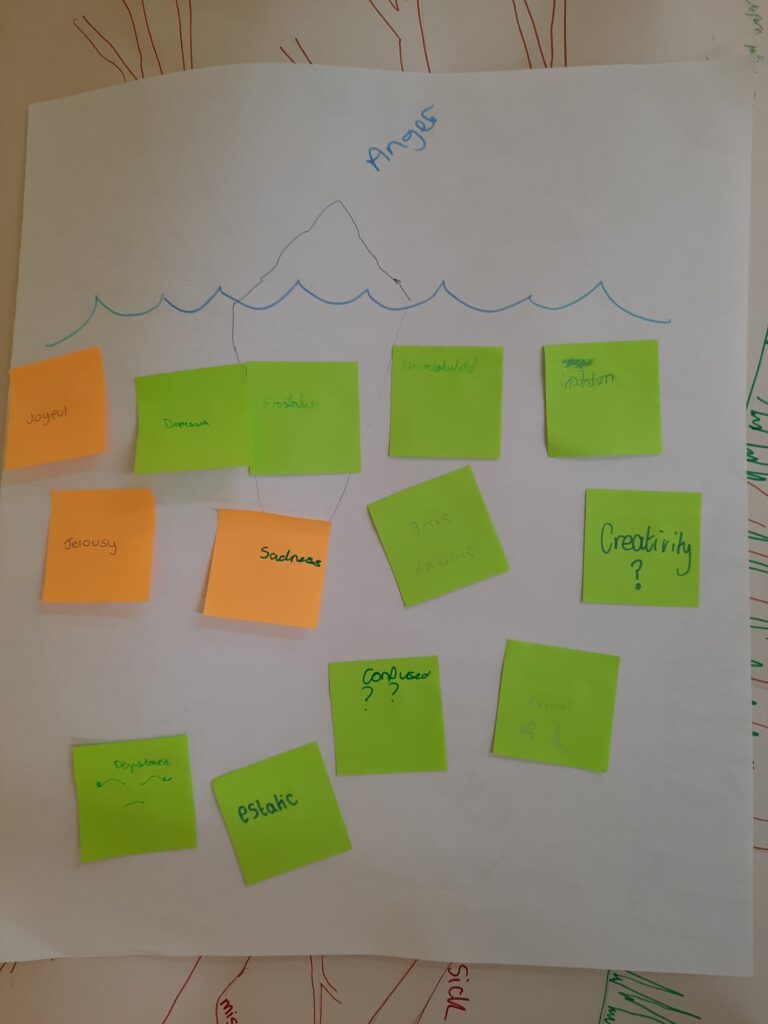I had a conversation with a mum recently where she was wondering why her son was so angry. It was showing in his behaviour at home and not usual for him. Having worked for a number of years with young people, one thing I have noticed is that the emotion they connect with the most is anger. This may well be displayed in their angry behaviour. It is the emotion they might revert to even when it isn’t the overriding emotion. I support them to name and label the different emotions they may feel. We then look at how these emotions make them feel physically. One example – for example “butterflies” in the tummy, or seeing red when angry

The Anger Iceberg
This picture shows the anger iceberg which is something I introduce to those I work with. The idea is that the anger is the tip of the iceberg and there are other emotions under the surface. If they can think about this then they can begin to recognise their emotions as they arise. Once this is mastered, they are able to do something to stop the going up the mountain of anger.
All emotions are valid it is the accompanying behaviour which isn’t, and learning to manage this behaviour is really important as they grow and develop. The rapidly developing adolescent brain makes them more sensitive and over reactive which is a tricky combination for everyone.
One example I worked with was a young person who wanted to manage his anger more effectively. He was a very insightful young man and understood the implications of uncontrolled anger in adulthood. In our second session he identified that when the anger subsided he mainly felt sad or scared. This came from him and what he has learnt about himself. While we worked on the triggers causing him to feel sad and gave him some tools to calm himself, we looked at how we could build his self esteem and equip him for the future challenges of school and peers..
How Can I help them?
When a child is young, naming the emotions for them can be helpful so they start to recognise them as they get older. Their behaviour is usually an outward sign of something that is going on inside them. So as long as they’re safe when they are in melt down let them reach some kind of calm before addressing the anger, the aim would be for them to be able to learn how to recognise what is happening, and then intervene before it all erupts . Helping them to focus on their breathing or some other kind of calming technique.
If your child is struggling with managing their emotions, or needs some support why not get in touch and book a counselling session.
